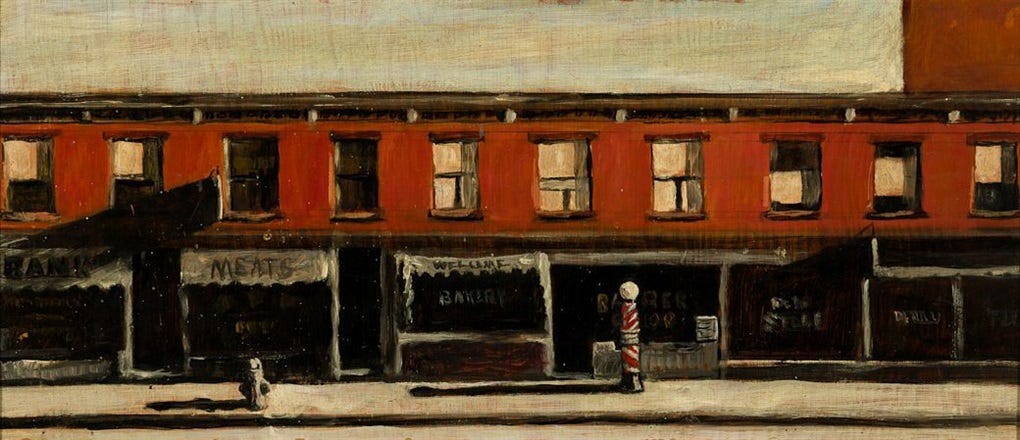I made it to Fairbanks, and somehow my dad woke up. I was standing next to him in the room. He looked around, confused at first. Then saw me. It was weird. It seemed like he was pissed to still be around or something. After lots of doctors coming in and out, checking on this level and that, Dad was able to talk. Barely. He said he was tired, that he didn't have anymore fight. That it was time to go. I made him a list of reasons to stay alive. And to cheer him up, and of course feed my ego, I read him some of my play. At the time it seemed like a good idea. I mean, what else would you want to do after coming out of a coma than listen to someone's new play? Also, I thought that may be he'd want to stick around and see the show. That is, if he ever got out of ICU. For the next week, my two sisters and I cleaned up his cabin, went through his things, and tried to figure out what to do if the big "if" happened. Alaska is a great place to go for contemplating eternity and oblivion. Wide and sparse and forlorn.
And then, Dad started getting a little better. Good enough to be moved down to California and live with my Aunt Bobbie and Uncle Mike. So we cleaned up his smoke infused cabin, and I got on a plane and headed back to New York and the Fringe and the show.
Long and the short of it: the show is in great shape- my brother Jerry, director of the show, has managed to put together an awesome production on a shoestring budget- less, on half a shoestring. And everyone seems to think something is happening. Something unique and not quite nameable. We get Theater for the New City for our space. We tech. We open on a matinee. And this guy named Martin Denton, who runs nytheatre.com, shows up for the first performance.
On that first performance, I learn that I feel like throwing up during my shows. Like throwing up and/or exploding. It's very strange, and I had hoped it was just for the opening, but I have since learned that is pretty much what happens everytime a play I've written gets performed. So there I am, pacing next to the risers, house left. There's about 90 people at the show. And it seems they dig it. A lot. I remember feeling really good. Triumphant, even. Then the review comes out. It's a rave, a pick of the Fringe. It is a surreal experience to get a good review, I think. You read it, read it again. Ask someone else to read it and tell you it's a good review. Read it again.
The show starts to sell out. We add a performance. This is hope theatre's second production ever, and our first in the Fringe. None of us are famous or anything close to it- even in the Indie Theatre world. And here we are, adding a show. Friggin' awesome. The rest of the Fringe run goes fantastic. I still feel like throwing up every performance, but I start to get used to it. The one thing I start to get hooked on is audience reaction- laughter, applause, and best of all, tears. One show, I saw a grown man cry like a baby. That was a good day.
Then, at the closing party for the Fringe, the play wins an Excellence in Playwriting award. And shortly after that, I get contacted by Martin Denton, asking if I'd like to have Last Call published in his anthology series, Plays and Playwrights.
And that's pretty much the story of Last Call.
As for my dad, he never got to see it on stage. I did get to tell him it was going to be published. It was close to Thanksgiving, and I was home in California. Dad was sitting in Aunt Bobbie's kitchen, and when I told him, he asked me how it felt to be a success. A nice thing to have your father ask you. He died shortly after New Year's.


